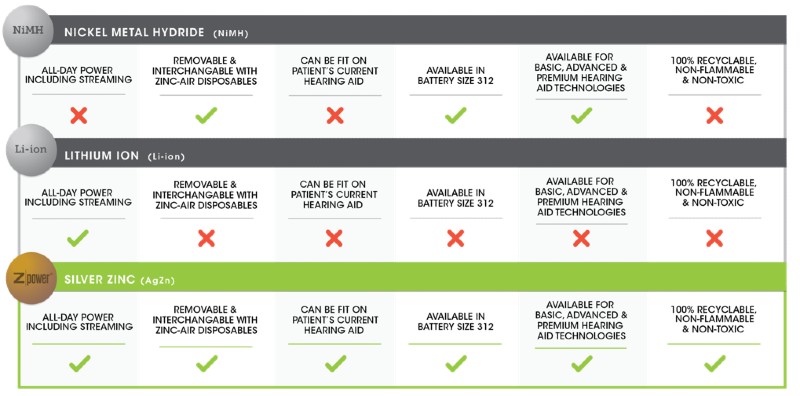
What are the Side Effects of Hearing Aids?
Reviewed by Dr. Porter on August 13, 2020
Hearing loss affects the overall quality of your life. You don’t need a study to know that if you are currently experiencing hearing loss to any degree. Just imagine being able to hear again more more clarity and without having to strain to catch what people are saying!
Recent research into the benefits of auditory aids suggests that they have benefits far outreaching just helping you to hear. They can delay the onset of dementia, reduce or eliminate depression, and the risk of falling in older adults. Wearing auditory aids can also help with anxiety and reduce the sense of loneliness and isolation that can lead to dementia.
Hearing aids have come a long way as technology continues to advance by leaps and bounds, but there may still be side effects, at least initially. Let’s look at some.
Common Side Effects of Hearing Aids
These side effects may be present, especially in the initial adjustment period, although not everyone will experience them. If you do experience discomfort of any kind, let us know so we can make whatever adjustments are needed to improve your experience.
Headaches
As you get used to your new auditory aids you may experience mild headaches or the feeling that your ears are plugged up. This should be a very mild problem and will quickly go away as you adjust to wearing your auditory aids. Remember that your brain has not been perceiving these sounds and will have to work harder or “exercise”, like a muscle that has grown weak. Your brain will be picking up many sounds it has not had to filter out in a while: footsteps, fans, ticking clocks and the like. These will sound loud and bothersome at first. Remember that this is normal and as your brain adjusts you will be able to tune them out and the strain of listening will lessen.
Having persistent headaches, however, is not normal and could be a sign that your devices are at a volume that your brain is not ready for. Should you find yourself experiencing persistent or painful headaches, please contact our office so that we may assist you.
Tinnitus
Since most people who have tinnitus also have a hearing loss, wearing auditory aids is often prescribed to treat tinnitus. As the other sounds are amplified the tinnitus will often be masked by everyday sounds, or for persistent tinnitus, a special program can be added to further treat it. Therefore it is very rare to have tinnitus develop due to wearing hearing aids. Should you find that you notice tinnitus after you start wearing your hearing aids please contact our office so that we can adjust them to help treat the tinnitus.

Skin Irritation
Let’s face it – our ears can be sensitive and putting a foreign object in them takes some getting used to. While some soreness may occur during the adjustment period, it should not cause redness, severe pain or bleeding. Should you have any issues that do not resolve within a day or two, or that worsen, please contact our office so that our providers can take a look and troubleshoot the issue. Often all that is needed is a change in dome size or a simple modification to your earmold. There is no need to put up with something that can be worked through with one of our qualified staff.
Technical Issues
Some hearing aids may produce feedback, which manifests as a loud whistle or squeal, when you put them on, when they are not properly seated in the ear, or when an item is too close to the auditory aid. The best solution for this is to put the hearing aids in your ears prior to turning them on or closing the battery doors. Make sure the dome or earmold is properly seated in the ear and no sound is escaping. Should you continue to struggle with this common issue, any one of the professionals in our office can assist you in troubleshooting the cause and help you find the best solution for your needs.
Anxiety and Fatigue
Most people don’t realize that it is your brain that is hearing, not your ears. Your brain will be startled to start picking up sounds that it has not heard in some time and this can cause fatigue and anxiety, especially in noisy locations. BE PATIENT. It will take time for your brain to get used to the extra stimulus and start prioritizing sounds as it re-learns what sounds need to be part of your subconscious and what sounds you need to focus on. Take your time and go slowly if needed. Just keep at it for the payoff is priceless! If you find that you are struggling so much that you no longer wear your auditory aids, please contact our office. There are many ways we can help.
Are There Any Side Effects of Hearing Aid Batteries?
While there are no reported side effects of auditory aid batteries, you need to know how to select and store them.
Because these batteries typically need frequent replacing, you’ll want to get long-lasting batteries and keep extras on hand.
Hearing aid batteries are mostly zinc-air batteries, meaning that the zinc requires air for activation. Therefore, it is essential to keep battery packs sealed and at room temperature until you’re ready to use them.
You should replace the batteries at the first sign that they are failing, as using depleted batteries could damage your hearing aid.

How to Mitigate Side Effects
Maintaining a close working relationship with your audiologist throughout the process is essential. While there are often side effects, especially in the beginning, they are usually mild and can be easily remedied by your audiologist.
There is an initial period of adjustment, so be patient with yourself and with your hearing aids. If you experience any discomfort, we can help.
Categorised in: Hearing Aid Batteries






